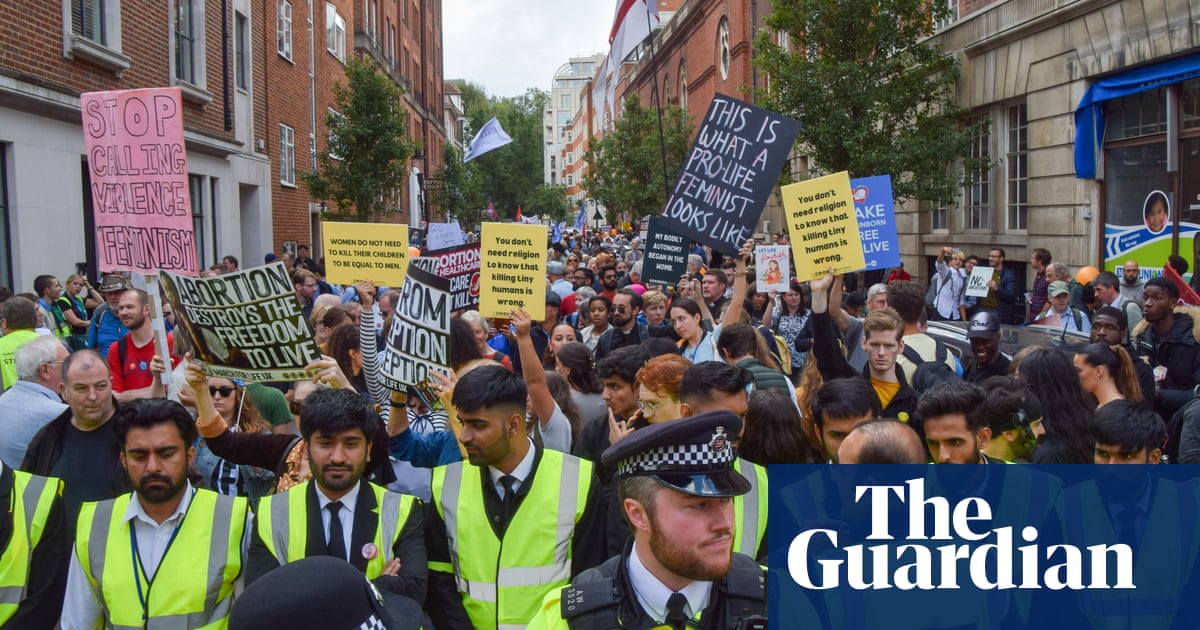
The Northern Ireland assembly can legislate to create buffer zones around abortion clinics to protect users and staff, the UK’s highest court has ruled.
The supreme court’s unanimous judgment means the assembly can proceed with the abortion services (safe access zones) (Northern Ireland) bill, which criminalises people who enter the specified areas and influence people attending clinics.
The attorney general for Northern Ireland argued that clause 5(2) of the bill was a disproportionate interference with the freedom of conscience, speech and assembly of anti-abortion protesters and demonstrators, protected under articles 9, 10 and 11 respectively of the European convention on human rights (ECHR), and so outside the assembly’s legislative competence.
However, Wednesday’s written judgment by Lord Reed said the restrictions were in pursuit of a legitimate aim – promoting public health – and compatible with the ECHR rights of anti-abortion protesters.
“The right of women in Northern Ireland to access abortion services has now been established in law through the processes of democracy,” he said. “That legal right should not be obstructed or impaired by the accommodation of claims by opponents of the legislation based, some might think ironically, on the liberal values protected by the convention.
“A legal system which enabled those who had lost the political debate to undermine the legislation permitting abortion, by relying on freedom of conscience, freedom of expression and freedom of assembly, would in practice align the law with the values of the opponents of reform and deprive women of the protection of rights which have been legislatively enacted.”
Under clause 5 (2), it is an offence to do anything, intentionally or recklessly, in a safe access zone that has the effect of influencing a person attending an abortion clinic or other protected premises for protected purposes. The attorney general had argued that because there was no defence for those who act with reasonable excuse, it was disproportionate. But the argument was rejected by the court.
Reed wrote: “A measure that seeks to ensure that women seeking a safe termination of pregnancy have unimpeded access to clinics where such treatment is provided, and are not driven to less safe procedures by shaming behaviour, intrusions upon their privacy, or other means of undermining their autonomy, is a rational response to a serious public health issue.”
The judgment was welcomed by abortion rights campaigners, including in Scotland where the parliament had been awaiting the decision before proceeding with its own plans for buffer zones. The MSP Gillian Mackay, who proposed the Scottish bill, said it could now “progress at pace”.
Alyson Kilpatrick, the chief commissioner of the Northern Ireland Human Rights Commission, which intervened in the case, said the bill should receive royal assent as a matter of urgency, calling the judgment “a positive affirmation of women and girls rights to protection from harassment when accessing these services”.
The other intervener, Justice, welcomed the protection for women accessing abortion services but expressed concern that the judgment could have significant implications for protest rights in other contexts, “from climate change to racial inequality”. It had wanted the justices to find that courts are always required to undertake a proportionality exercise when deciding whether to convict in circumstances where articles 9, 10 and/or 11 are engaged, but they declined to do so.












